Best British Schools for Music
By
8 years ago
Emma Love finds that many schools market their music rooms as a barometer of their success
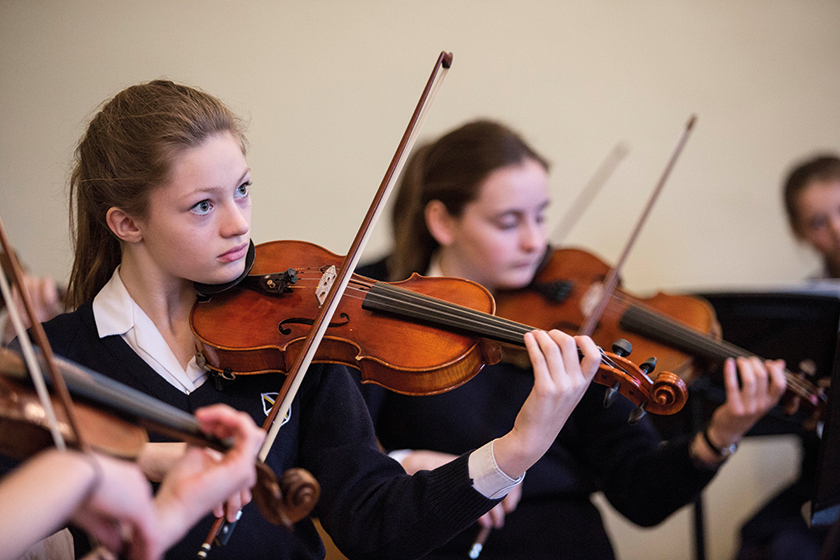
What are the best British schools for music? From Port Regis School in Dorset and Alleyn’s School in London to more niche specialist music schools in the UK, Emma Love lends an ear to the music streaming out of independent schools.
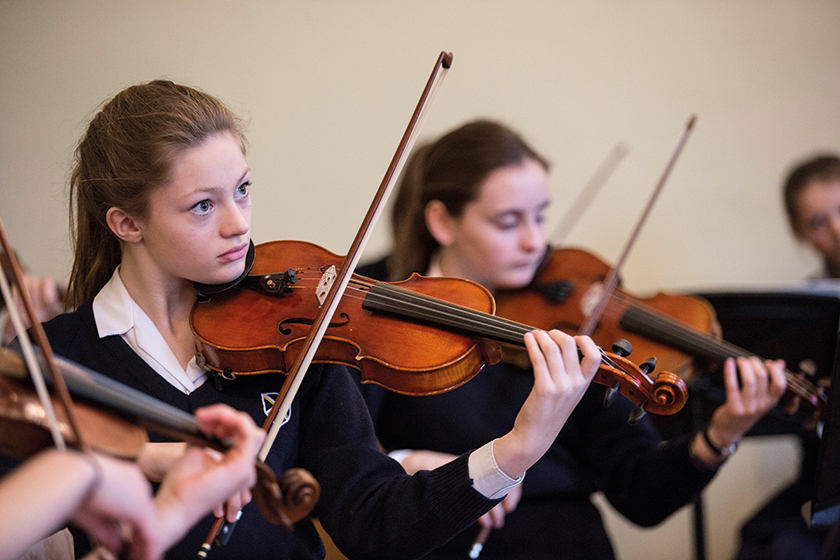
‘Music lights up bits of the brain that nothing else seems to,’ says Elizabeth Cairncross, head of Wells Cathedral School in Somerset. ‘Neuroscientists used to think that the ability to speak came before the understanding of sound but now we know it’s the other way round. Teaching little children rhythm is really important for brain development.’
Best independent schools for music
From early education upwards, schools build music into the timetable. At pre-prep level at Farleigh School, for example, there is a specialist weekly one-hour music class for all pupils in the kindergarten, reception, Years 1 and 2, (plus a compulsory choir for Years 1 and 2). But when it comes to the extra curricular, it can be hard to know whether to plump for lessons in the flute or violin, say, and which will spark the most enthusiasm and passion.
At Port Regis, head of music, Shaun Bracey, tries to steer the youngest children towards the instruments that would suit them best. ‘The piano is a very good foundation instrument but it’s not necessarily the ideal one to start on,’ he explains. ‘We chat to the child and their parents and also do various tests, such as singing and clapping rhythms, to see what their natural ability is like. If someone is struggling to get a note in tune, they will also struggle with learning a string instrument because they need to be able to tune it. In that case, something like a woodwind instrument might be easier to play.’
Instrument chosen, children are also rewarded for practising. ‘They earn a merit for their school house by turning up to practice. They can also earn a star for effective practice, and if they get that most weeks, a practice certificate. The idea is to get them into the habit of practising properly.’ Not only does music by its very nature involve self-discipline and motivation, it also teaches many other basic but essential skills that filter through to other parts of school life. ‘Group work, concentration, being punctual, dealing with competition in a healthy way…’ says Daniel Phillips, director of music at King’s College School Wimbledon, while reeling off a lengthy list.
‘Performance is key because it builds confidence,’ continues Chris Dearmer, director of music at Alleyn’s School. ‘Children play with others at the same musical level as them, regardless of age, so it’s a way for different year groups to get to know each other. Music is a really important creative outlet in an otherwise academically-focused environment and it has transferable skills.’ The fact that music has all these subliminal benefits is perhaps one reason why so many parents encourage children to learn an instrument.
‘One of the advantages of the independent sector is that that there are so many musical opportunities,’ says director of music at Farleigh School, Marcus Reeves. ‘Over the last ten years the number of pupils learning an instrument or having singing lessons has continued to increase despite the economic circumstances, which tells us that parents recognise that it really is worth the investment.’
He also cites nostalgia and regret – parents often wish they had continued to play the piano, for example, long after they gave it up – as another reason why children are often encouraged to immerse themselves in music for as long as possible.
Investment in school music departments
It’s not just parents who are investing in music but schools too – in October, Farleigh School will be unveiling a new music building, complete with a dedicated concert hall and a recording studio that doubles up as a soundproof drum and rock room. The fact that recording facilities now come as standard in many schools is indicative of the relevance of subjects such as music technology – covering anything from recording live performances to composing with digital sounds, and mixing, manipulating and editing music – which now sit alongside more traditional music lessons on the curriculum.
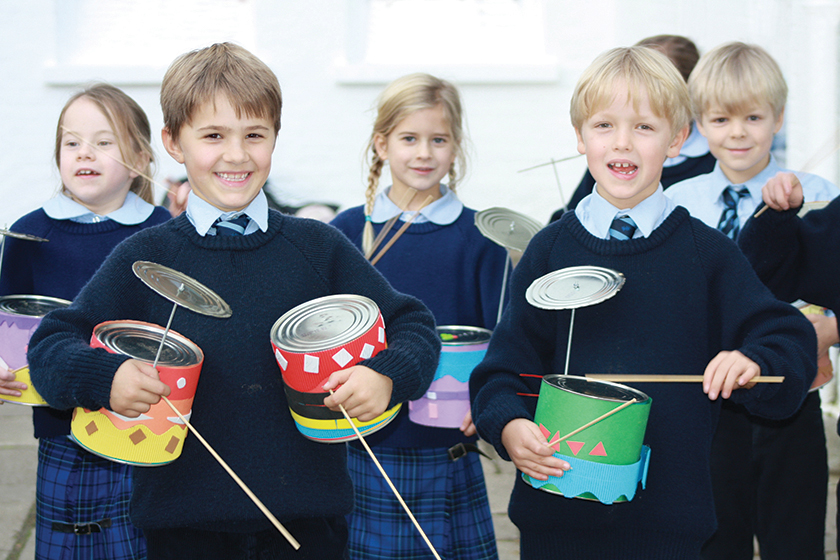
‘At GCSE level, music technology has been an option for years, but more recently it has been filtering down and developing in prep schools too,’ continues Reeves. ‘It’s a result of children taking more of an interest in the subject and of the technology becoming more affordable and accessible. Plus, it’s something that children can experiment with, whether they have specialist skills or are a compete beginner.’
Bedford School
At Bedford School, where the BBC Symphony Orchestra used to record in secret, in the great hall, during World War II (the sixth-form music society is named after the conductor, Sir Adrian Boult), this idea of giving equal status to both older and more modern forms of music is part of the music department’s mission statement. It reads: ‘to create an outstanding and vibrant experience for all boys at every level in the school, which is innovative and balanced between traditional and contemporary’. Director of music, Joss Sanders, argues that ‘both are equally important. In most schools, the traditional side of music is far more developed than the contemporary, but in the last ten years there has been massive growth in music technology as part of education. If you look at music-related careers, there are so many opportunities within a contemporary context that it’s important to give the children the chance to experience all forms.’
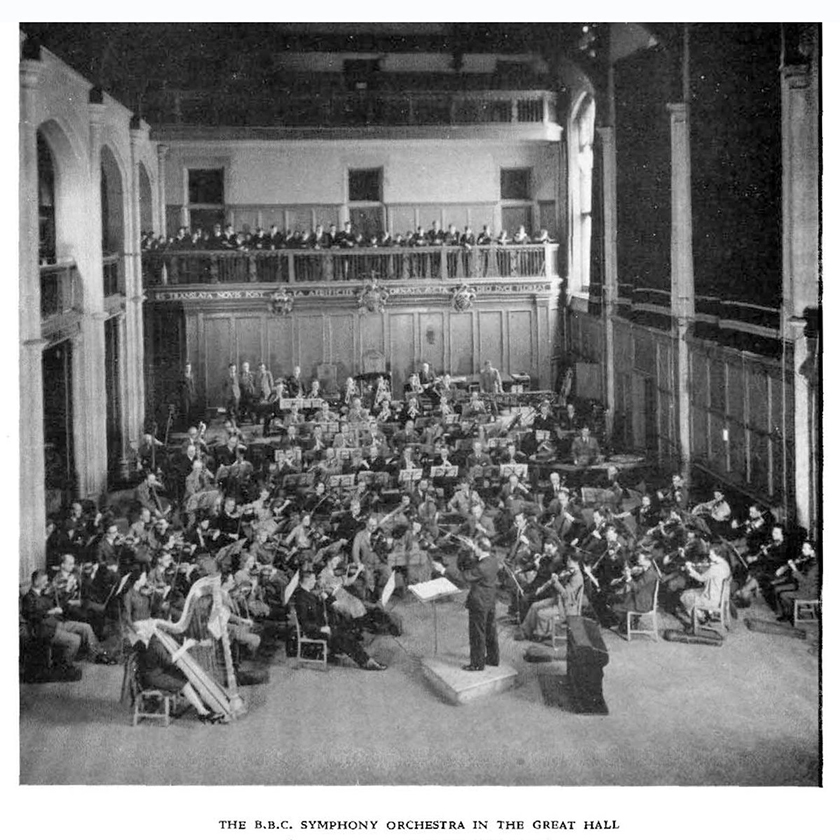
The school’s radio station is the perfect example of an extra-curricular activity that feeds into a potential broadcast career. Boys are given initial training and then work in small groups to create their own shows which are recorded in-house and then streamed internally or externally (depending on song copyrights).
Bryanston
Similarly, at Bryanston, a recording studio is very much part of the musical agenda. ‘One thing we try to do is merge the traditional with the contemporary. A pianist can go into the studio, record themselves playing and self-assess, which is a really useful tool when it comes to practising for exams and recitals,’ says director of music, Duncan Emerson.
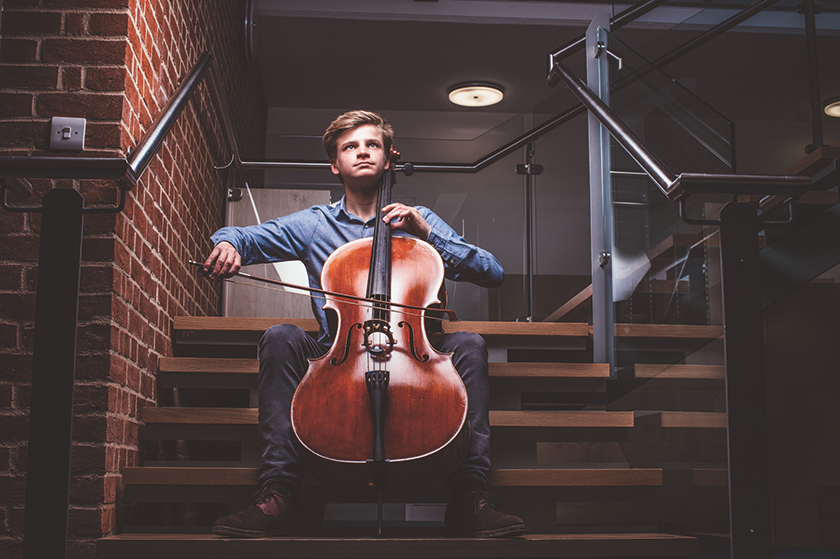
The school runs several extra-curricular courses that make use of the studio, including Film Music, which is taught by visiting lecturer, Toby Langton-Gilks, who composes for Sky and the BBC. ‘He uses a MIDI system to show pupils how they can create sounds from any musical instrument using an electronic keyboard to accompany film clips. Of course, you can’t replace acoustic instruments with electric music but we are catering for that element of composition with these courses.
Electronic music aside, Bryanston aims to cover an array of musical styles and in as many different ways possible – steel pans have recently been added to the percussion studio to entice children who might not fancy the choir, and pupils assist at a Saturday string school for local prep school musicians. ‘Any music department will try to involve as many children as possible so it’s essential to organise a breadth of music making,’ continues Emerson.
‘Composers like Chopin and Schubert are wonderful but we are trying to engage everyone.’ One way of doing that is with another growing musical strand – rock.
Bedales: Rock out at the best British schools for music
There is a healthy rock scene in many schools (Bryanston and Bedford, for example), but it is perhaps Bedales that stands out as having the greatest reputation with its legendary annual Bedales Rock Show. Dating back to 2002, it first made its name when Pete Townshend, lead guitarist and songwriter for The Who (who had a son studying at the school at the time) offered up the use of his road crew and sound equipment for the show. A few years later, Townshend also performed.
More recently, in the post-Townshend era, choirs, string orchestras, brass and percussion sections have been added to the lineup as a way of including more of the school community, and you are as likely to hear Tina Turner and Stevie Wonder hits belted out on stage as someone’s own composition being performed for the very first time. ‘My feeling is that rock should be given equal importance as classical music,’ says director of music, Nick Gleed.
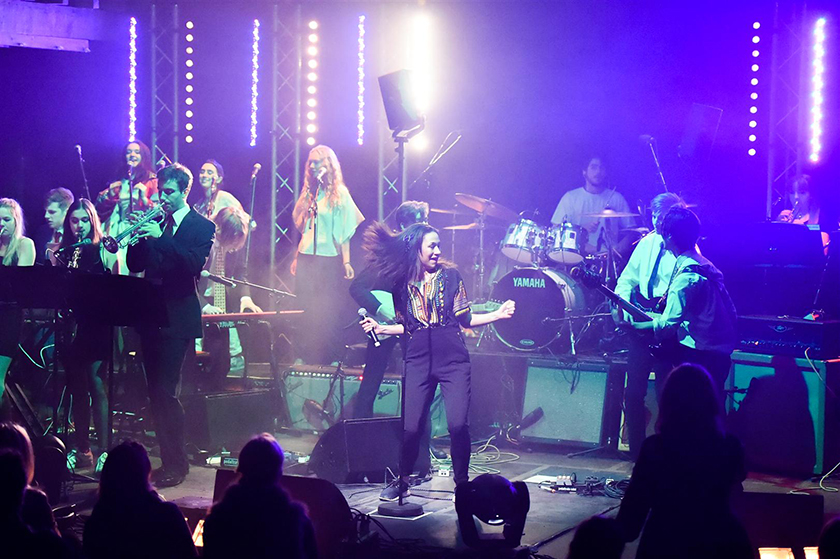
Of course, as well as concerts in school, an important part of music is performing in different venues, both abroad and in the UK. Alleyn’s pupils regularly perform in concerts at the Purcell Room on the South Bank while the chamber choir at King’s College Wimbledon has sung at Hampton Court Palace and Chichester Cathedral. ‘The chamber choir is our flagship ensemble but we also have King’s kapella, a big band, a very popular swing band and smaller jazz groups, who all perform outside school,’ continues Phillips.
Music technology in British schools
These days, even if schools are geographically worlds apart, technology connects pupils. Jack Hardman from M:Tech explains why tradition and technology don’t have to be at odds when it comes to teaching music:
‘M:Tech has been taught at various prep schools since 2011, with very positive results. The introduction of technology into music lessons has seen pupils gain both confidence and musical ability.
‘The sequencing software M:Tech uses, allows complete compositional creation and playback, meaning that pupils can record their ideas as different layers of sound and build a full piece from concept to completion. M:Tech has access to over 2,000 different virtual instruments, so children gain a deep understanding of instrumentation and how different instruments work together.
‘M:Tech runs an extra-curricular, creative composition course for children aged seven to 13 in over 40 independent prep schools. It provides all equipment required for the course and each week a member of staff visits the school to deliver the tuition in exactly the same way as any other visiting instrumental teacher.’
So whether a child longs to join a gospel choir, learn the bagpipes or be part of a barber shop quartet, practically anything is possible. And even if these days few homes have a piano, traditional instruments still have their rightful place in education. ‘A school has traditions and one of the things we’re responsible for is preserving what’s good in those traditions because once you’ve lost them, you can’t get them back,’ concludes Gleed. ‘A school with a good choir is probably a healthy school. It says a lot about how a place is run.’
SPECIALIST MUSIC SCHOOLS: Royal College of Music, London / Guildhall School of Music & Drama, London / London College of Music / City of Edinburgh music school / Academy of Contemporary Music / Royal Academy of Music, Manchester / St Mary’s, Edinburgh
READ MORE: The Best Schools for the Creative Arts
You can also check interesting articles on music at Spriee



